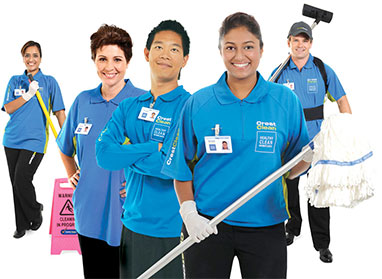Disinfectants out for greener and safer alternative

HyperClean is a highly-effective cleaner that neutralises pathogens in a single step.
The days of using disinfectant are over for a leading commercial cleaning company behind a pioneering move to develop a unique Kiwi-made greener and safer alternative.
Following extensive product testing, CrestClean ditched disinfectants from its cleaning regimes and switched its cleaning personnel to the new eco-friendly multipurpose product. HyperClean is a highly-effective cleaner that neutralises pathogens in a single step.
The product’s active ingredient – hydrogen peroxide- breaks down into harmless oxygen and water. Unlike disinfectants and other strong cleaning products, it leaves no potentially-harmful chemical residues on surfaces it comes in contact with.
Prior to the HyperClean’s release, the cleaning company’s 1700 personnel around the country got through thousands of litres of disinfectant each year. By switching to a green alternative a massive 42,000 litres of disinfectant is now not ending up in the environment.
CrestClean’s decision to ban disinfectant use has been praised by Environmental Choice NZ – the country’s official eco-labelling organisation.
Francesca Lipscombe, its General Manager, urged other cleaning companies to follow CrestClean’s ground-breaking lead.
“We’re thrilled to see CrestClean take this initiative to develop and use a viable alternative option, and completely cease their use of disinfectants,” she said. “We hope other organisations will follow suit.”
Last year CrestClean gained Environmental Choice accreditation for its five core cleaning products. Approved products and services must meet stringent environmental criteria. CrestClean is the only national cleaning company to have its cleaning and specialist services EC approved.
CrestClean Managing Director Grant McLauchlan said as part of the company’s EC approval process a commitment was given to raise the bar.
“There was an expectation of us to look at our core cleaning activities to see what we could do to lessen the environmental impact of these activities.”
HyperClean was developed after research highlighted innovation in the cleaning industry across the globe, he said.
“We saw that on a worldwide level there is trend towards the use of hydrogen peroxide. HyperClean has been developed and trialled in New Zealand and is an innovation. It’s a highly effective cleaner.”
He said as well as HyperClean having no detrimental effect on the environment, it was also a safer product for user and consumer.
“In the cleaning industry there have been products that have been used liberally that were potentially injurious to the health of cleaners and also to the users of buildings.
“Sometimes people in offices could get a rash from their desk or table if they had sensitive skin that may have been caused by a chemical residue left by a cleaning product.”
HyperClean was developed by Chemical Solutions Ltd – CrestClean’s supplier of cleaning products. Chemical Solutions Managing Director Terry Morris says disinfectants are “eco toxic” and their use is often unnecessary.
Over use of disinfectants means our everyday environment could end up being too clean for our own good, he says.
“Mass market advertising tells us every surface needs to be sterile and we should use antibacterial soap to wash our hands and we need to use an antibacterial spray for our surfaces.
“The reality is that if a surface is clean and dry there will be no significant risk of bacteria on it. Bacteria need food, moisture, warmth and time to grow. If one of those factors is missing you’re not going to get bacteria.”
Hydrogen peroxide is widely used in the food industry as a steriliser and cleaner. When it oxidises it lifts dirt from the surfaces it comes into contact with. HyperClean can be used in a concentrated form for bathrooms and toilets or in a diluted form as a spray-and-wipe.
Ms Lipscombe says the environmental effects of disinfectants have been a concern to her organisation for some time.
“We don’t believe biocidal products like disinfectants and ‘sanitisers’ are necessary, since proper hygiene and cleaning have been shown to be sufficient to remove problematic bacteria.
“Apart from being highly toxic to the environment, overuse of biocides has been linked to bacteria building up resistance to the biocide and possibly to antibiotics, and we feel their widespread use in homes and schools is actually damaging to health in the long term.”
She says New Zealand does not have national efficacy standards for sanitisers and disinfectants. “Our cleaning product specifications also don’t cover them, but it is an area we’d like to see greater controls over.”
